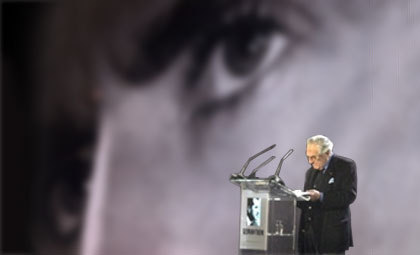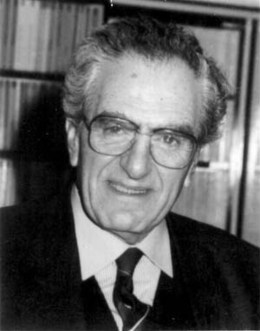He had been hospitalized for the past three to four weeks. Tueni has had a long career as a journalist, politician, diplomat, and educator. He was born in 1926. He studied at the American University of Beirut and went for further studies in the U.S. But he returned to Beirut after his Masters studies in political science at Harvard University following the sudden death of his father Gebran in 1947. He took over the newspaper that his father had founded and then served as editor-in-chief and editor-publisher for more than half a century, from 1948 until 1999. In 2003 he once again resumed his duties as editor-in-chief. He has received an honorary doctoral degree from his first Alma Mater, the American University of Beirut. Ghassan Tueni was elected a lawmaker in 1951 and became deputy speaker from 1953 to 1957, and member of the Lebanese U.N. delegation in 1957. He later served as deputy prime minister, as head of several ministries, personal advisers of presidents, and as Lebanon’s U.N. ambassador. In 1970-71 he was deputy prime minister and minister of information and national education. From 1975 to 1977 he was minister of tourism, social affairs, industry, labor and information. As Lebanon’s ambassador to the United Nations between 1977 and 1982 at height of the civil war, he recalls “yelling, literally yelling, in a Security Council meeting, ‘Let my people live!’ and proclaiming before the General Assembly, ‘My country is not for hire nor for sale!'” Tueni’s son Gebran, also a former lawmaker, was assassinated in 2005. He was among the series of politicians and journalists who were targeted following ex-Premier Rafik Hariri’s assassination. Gebran’s death in a car bomb explosion dealt Ghassan Tueni a severe blow since he had already lost his wife poet Nadia Hamadeh in 1983, his daughter Nayla at a very young age and his youngest son, Makram, who died in a car crash in 1987. He became a lawmaker again between 2006 and 2009 after his son’s seat was vacated by the assassination. Throughout his career, Tueni has been in the vanguard of the struggle for Lebanese freedom, independence, and national sovereignty. The funeral procession will be held at 12:00 pm Saturday at the St. George Greek Orthodox cathedral in downtown Beirut while condolences will be accepted at the St. Nicolas church in Ashrafiyeh on Friday, Sunday and Monday. In addition to his numerous editorials and articles in Arabic and English on the Middle East, Palestine, and the Lebanese wars, Tueni’s publications include Peace-Keeping Lebanon, 1979; Laissez vivre mon peuple! 1984; Une guerre pour les autres, 1985; and in Arabic, Letters to President Sarkis, 1995; Professional and Other Secrets, 1995; The Republic on Vacation, 1992, 2004; and, with Jean Lacouture and Gérard D. Khoury, Un siècle pour rien, 2003. Ghassan Tueni is survived by his second wife Shadia al-Khazen and four grand-daughters



by Naharnet News




